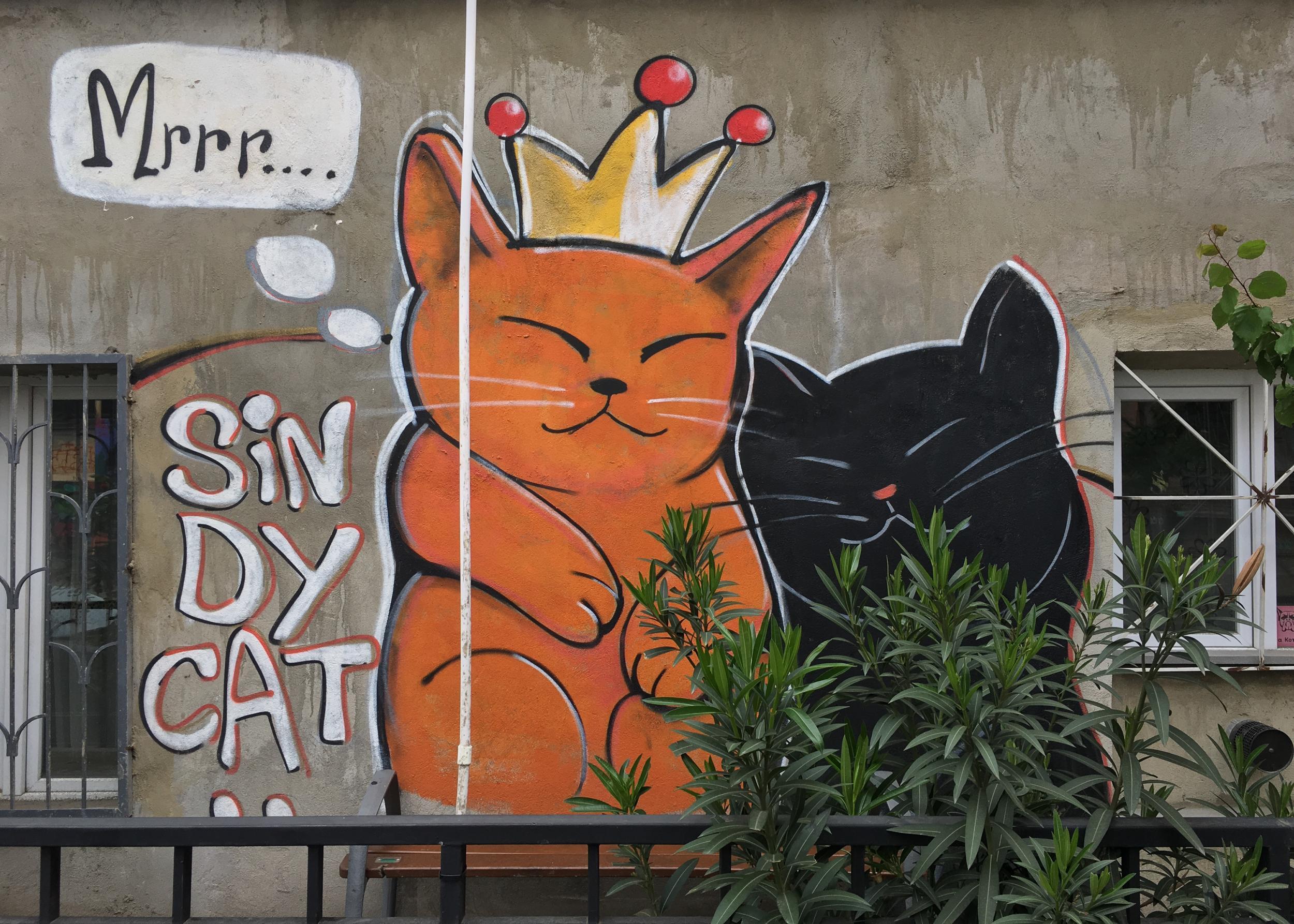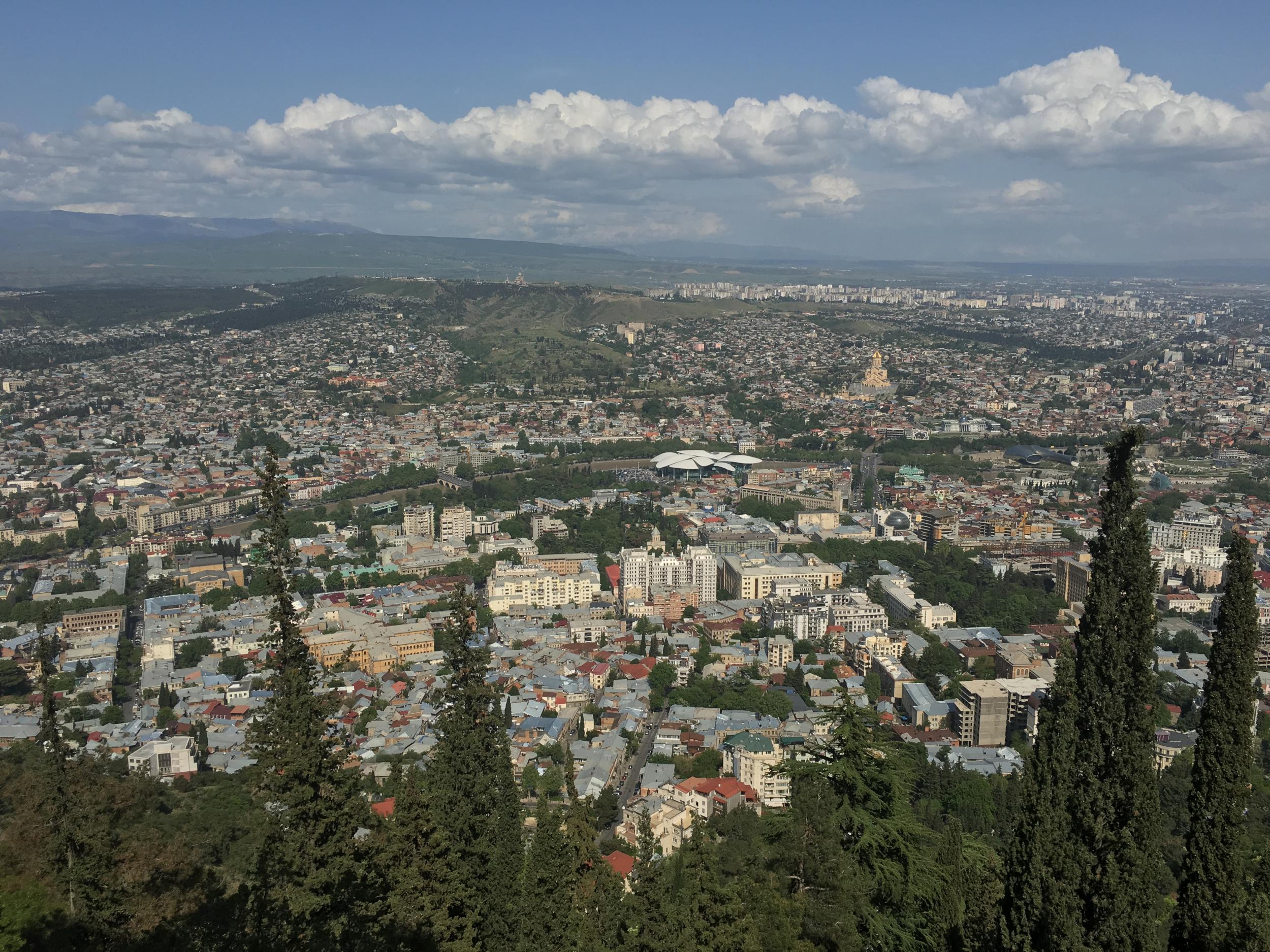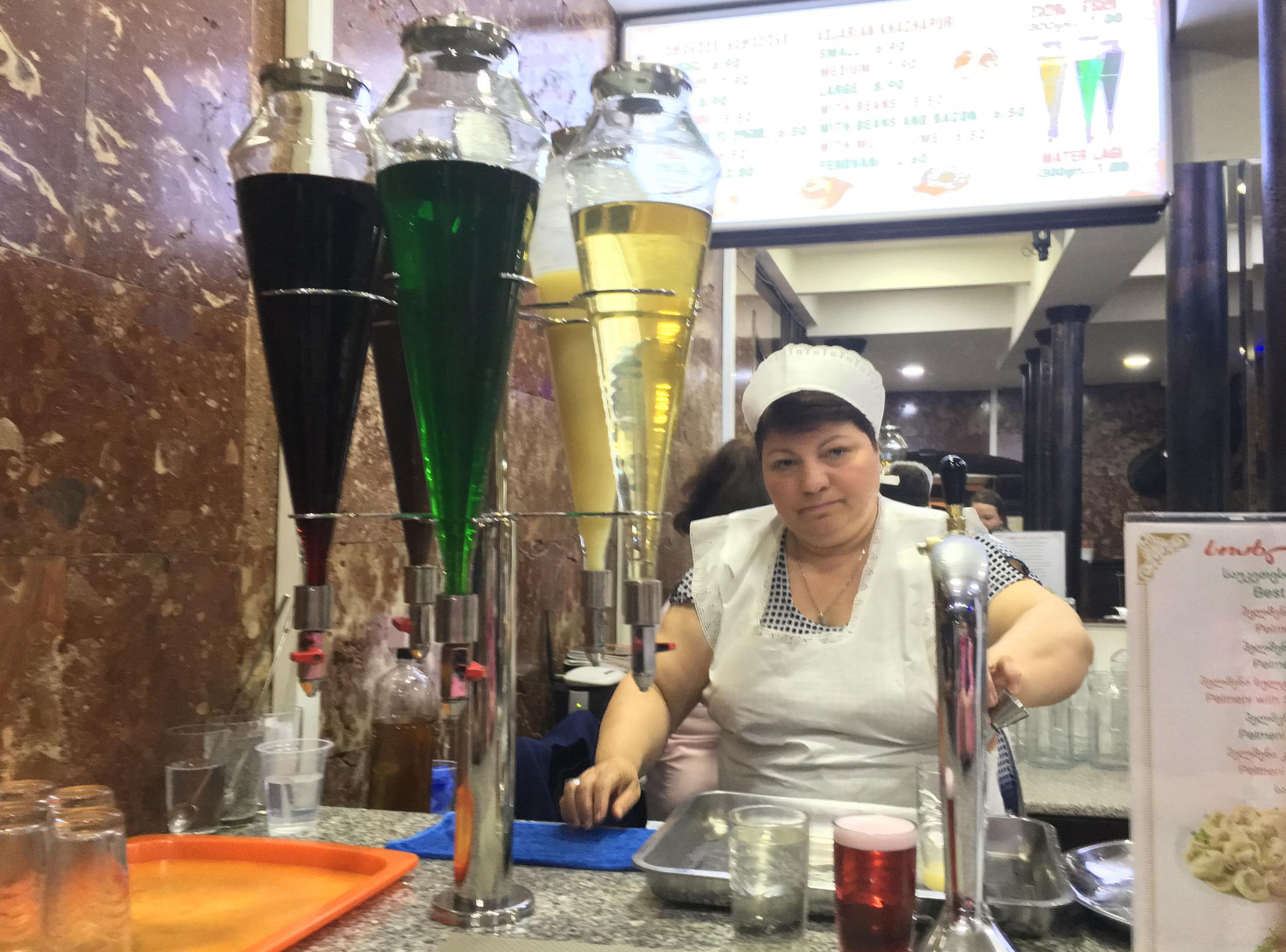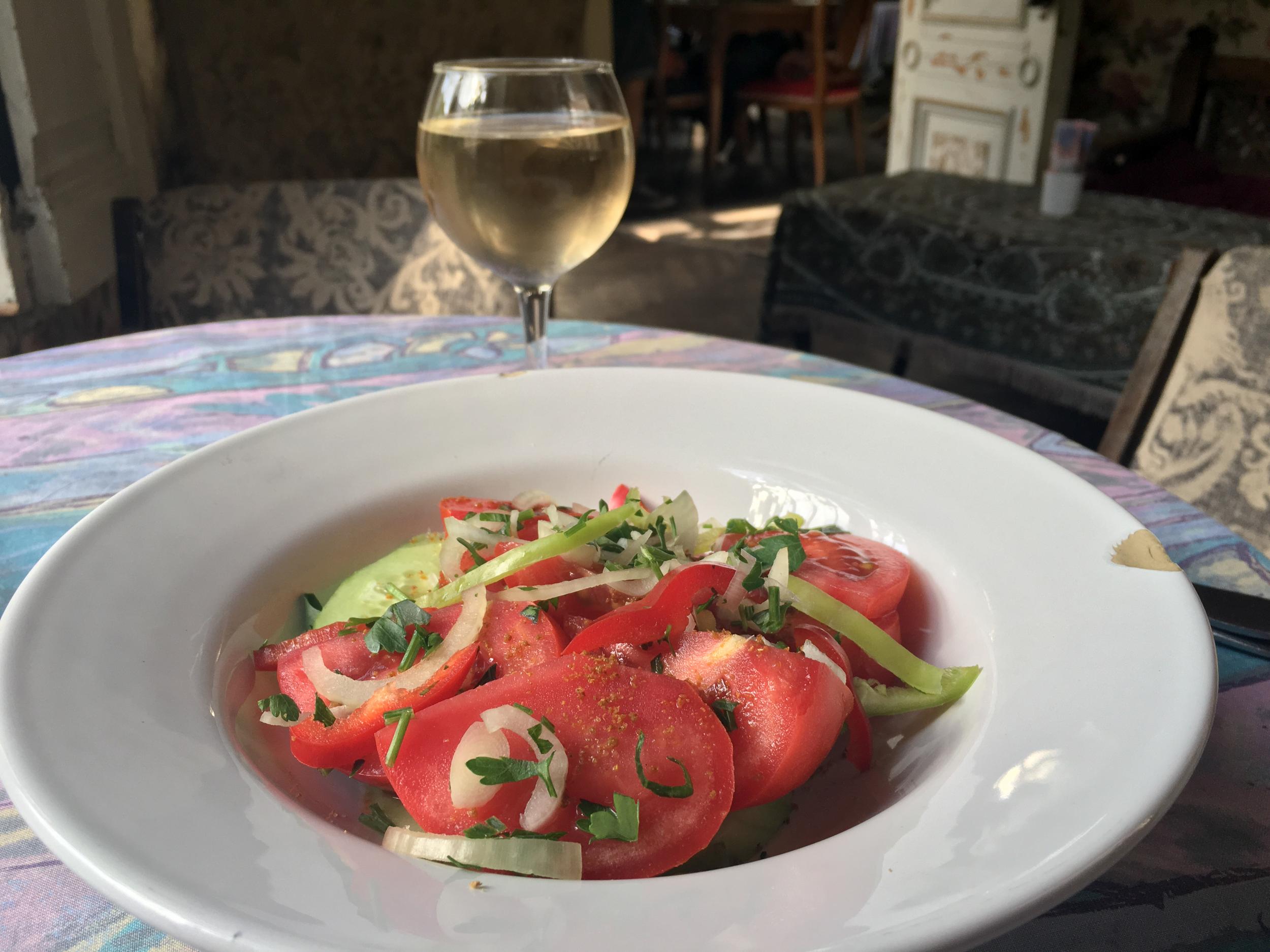10 things to do in Tbilisi
With direct flights just launched from Gatwick, now's the perfect time to explore the Georgian capital

Your support helps us to tell the story
From reproductive rights to climate change to Big Tech, The Independent is on the ground when the story is developing. Whether it's investigating the financials of Elon Musk's pro-Trump PAC or producing our latest documentary, 'The A Word', which shines a light on the American women fighting for reproductive rights, we know how important it is to parse out the facts from the messaging.
At such a critical moment in US history, we need reporters on the ground. Your donation allows us to keep sending journalists to speak to both sides of the story.
The Independent is trusted by Americans across the entire political spectrum. And unlike many other quality news outlets, we choose not to lock Americans out of our reporting and analysis with paywalls. We believe quality journalism should be available to everyone, paid for by those who can afford it.
Your support makes all the difference.What is it about Georgia lately? The country (not the US state) seems primed to be one of the hottest tourist destinations for 2017, as travellers are freshly obsessed with the fashion, the mountain trekking, the architecture, and the good eats. The best news for those travelling from the UK? Georgian Airways launched direct flights from Gatwick to Tbilisi over the weekend; next month, Wizz Air will start a route to Kutaisi from Luton. Want to see what all the fuss is about? Here are our top 10 tips for what to do in Tbilisi.
Browse Soviet relics
From 1921 to 1991 Georgia was part of the Soviet Union. This history is evident everywhere, but most in your face while walking through the Dry Bridge Flea Market near Dedaena Park. Locals who lived the bulk of their lives under Soviet rule spread blankets on the ground and lay out goods they’ve saved from the scrap heap. The range of items is boggling; it’s priceless antiques next to plumbing fixtures, next to tarnished military medals and handmade crafts. Be prepared to bargain, and to receive a history lesson with each purchase.
Learn the etiquette of “khinkali” dumplings
Georgian dumplings are plump, round pouches filled with minced meat, chopped onion and spices. Pinched closed, you then flip the dumpling over and gingerly bite into its skin, sucking out the hot soup inside before going in for whole bites. Don’t eat the pinched bit; it’s not always cooked through and is used for staff to later count how many were eaten. Khinkali are omnipresent on menus in Tbilisi, but head to Barbarestan on Aghmashenebeli Avenue to try them alongside other Georgian dishes, their recipes straight from Barbare Jorjadze, a 19th-century princess and renowned cook who is generally accepted to have been Georgia’s first feminist.
Strip down and suds up
The ancient district of Abanotubani in Tbilisi’s old quarter is home to several equally ancient sulphur bathhouses. Head underground through brick entrances to pay an attendant for towel and sandal rental, and your choice of communal shower (separate for male and female) or private room with soaking tubs. Add on an exfoliating scrub-down and soapy foam massage for a few pounds more, but be warned that complete nudity is the rule. At the simply named Bathhouse Number 5, exquisite mosaics decorate the domed rooms, making up for the faintly eggy smell of the sulphur water.
Party at Fabrika
An old sewing factory turned hostel sounds like a stereotypical hipster hangout, and that’s totally true in Tbilisi. Fabrika offers communal, hostel-style rooms from as low as £10 per person, and private ensuite rooms for two are from £38 per night, but guests should be warned that the party in the public areas often lasts well into the night. The lobby bar Cocktails and Dreams, the courtyard strung with fairy lights, and the co-working spaces and artisan shops that make up the complex draw locals as well as visitors; you’ll make friends fast here.

Take in some culture
Tbilisi is no backwater destination; the spectacular Zurab Tsereteli Museum of Modern Art plays host to a biannual Fashion Week, the stunning architecture of the modern Peace Bridge lights up the riverfront at night, and the oddity of the 2011-constructed “Leaning Tower of Tbilisi” (aka the Gabriadze Clock) provides plenty of opportunities for Instagramming.
Eat a cheese-stuffed bread boat
Better known as “Acharuli Khachapuri”, this traditional Georgian comfort food is a gluten-free traveller’s nightmare, but heaven to most. The boat-shaped flatbread arrives fresh from the wood oven to the table, its centre bubbling with melted cheese, a runny egg, and a generous pat of butter. Even a small order is enough for two people, especially with a side of khinkali.

Drink what the locals drink
Yes, Georgian wine is fabulous. Red or white, dry or sweet, it’s all extraordinarily drinkable thanks to the fertile environment of the lower Caucasus, one of the most ancient viticulture regions in the world. But branch out beyond the wine for chacha (ჭაჭა), which is no dance in Georgia. Chacha technically refers to any fruit-based liquor, but it’s come to be most synonymous with grape brandy, produced from the leftovers during winemaking. It’s clear and strong, and most similar to Italian grappa. Stop into the parlour-style Books Cafe on Tsinamdzghvrishvili Street (yes, Georgian street names are epic) for a thimble full of chacha, a game of backgammon, and a browse of their used books for sale.
For something a little less strong, hit up a Georgian soda fountain for “Lagidze waters,” cool and sparkling concoctions of flavoured syrup mixed with mineral water. Invented by pharmacist apprentice Mitrofan Lagidze in the late 1800s, the drinks are cheap, fast, and refreshing. The most popular varieties of lemon, grape, cherry, and even chocolate, are poured and mixed from traditional dispensers at places like Acharulebi Lagidzeze and the aptly named Lagidze Water at Sameba Cathedral. Point to the bright green syrup to try Tarkhun, or tarragon soda, a flavour embraced by the Soviets and now produced and available bottled in supermarkets as “Тархун.”
Get high
Tbilisi sits in a valley, cut through by the Mtkvari River and backed by small mountains. Heading up Mount Mtatsminda to reach a small amusement park and the best view over the city is easy via modern funicular. There’s also the option to visit the Narikala Fortress via cable car from Rike Park, which comes with the bonus of gliding right over the twisting streets of Tbilisi’s old quarter before arriving to the medieval ramparts of the fort.

Make a salad
According to Megan Starr, a travel blogger who regularly visits countries of the former USSR, Tbilisi is the perfect destination for salad lovers. If there’s one dish ideal for summer, it’s the simple and filling Georgian Salad. Quarters of ripe, juicy tomatoes fill a bowl with slices of onion, cucumber and green pepper. It’s finished with a palmful of walnuts, a dusting of pepper, and a drizzle of olive oil. Get it at Linville, a cosy and antique-filled first-floor cafe near Freedom Square, where the salad is terrifically refreshing on a humid day, and even better with a glass of crisp white Georgian wine.
Get out of town
Technically this list is what to do in Tbilisi and can be rushed into a long weekend. If you have more time, use the trip as a two-for-one, adding exploration of Kutaisi, Kazbegi or Batumi to your plans. Kutaisi is a pedestrian-friendly city of streets lined with gardens, theatres, and several medieval church and monastery UNESCO World Heritage sites. The frontier mountain town of Kazbegi, also called Stepantsminda, is for hikers and, in the winter, for skiers. The Georgia-based luxe hotel group Rooms Hotels recently opened a “retro-Soviet meets industrial chic” property in the town.
Batumi is one of the most affordable summer beach getaways in Eurasia, with its stretches of sand on the Black Sea and plenty of cute fountains and tourist sites for selfie-filled strolls. Otherwise, Azerbaijan’s sparkling cosmopolitan capital on the Caspian Sea, Baku is an overnight sleeper train (£13 per person, each way, for a second class sleeper bunk) away from Tbilisi; just be sure to secure the mandatory e-visa before departing.
Join our commenting forum
Join thought-provoking conversations, follow other Independent readers and see their replies
Comments